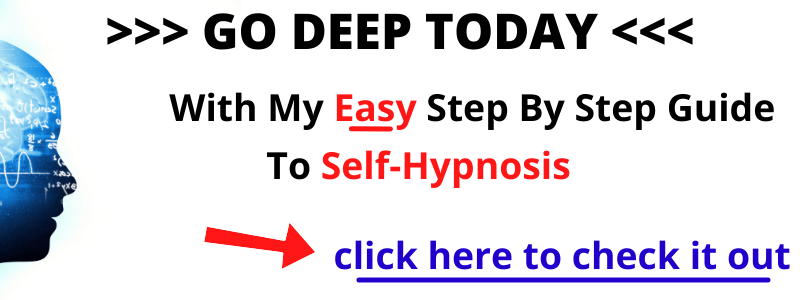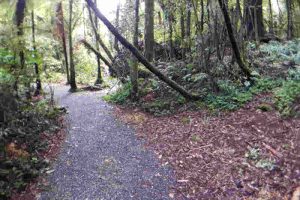Even when you know that hypnosis is real, it’s natural to ask if you personally can be hypnotized. There is copious evidence that many people can be hypnotized, but there are also those who claim that not everyone can be.
So how do you know if you can be hypnotized? The short answer is that if you can learn new things, then you can be hypnotized. The slightly longer answer is that having an experience of being hypnotized is a skill, and like every other skill, some of us are very close to having it while others require significantly more work to get there. In this article, we’ll go over exactly how to tell how much might be required for you to be hypnotized.
What is hypnosis?
People out in the world have all sorts of weird beliefs about hypnosis. Most of these come about because the representation of hypnosis in pop-culture is quite a long way from actual hypnosis.
In reality, hypnosis is a natural state that everyone enters into multiple times every single day.
It also seems to be the core of how human minds learn.
When you study the behaviors of neural networks, it rapidly becomes clear that hypnosis exists largely because of capacity limits of the human brain. The fact is that we only have around a quadrillion neural connections to store everything that ever happens to us.
While a quadrillion is a lot, it’s not a lot compared to the amount of information we have to store over a typical human lifetime.
The end result of these capacity limits is that we can’t filter or process all the information we’re exposed to, and this results in gaps in our awareness. Hypnosis happens in these gaps.
Read more: How Does Hypnosis Work?
Now, because we know that hypnosis happens because of capacity limits on the human brain, and everyone has these limits to some degree, it follows that everyone can be hypnotized.
But having an experience of being hypnotized is a skill.
What is a skill?
Some of us can learn more easily than others.
And most of us can learn some things very easily, while we find others to be extremely difficult.
In my case, I’ve always found physics, math and other related fields to be extraordinarily easy. On the other hand, understanding hypnosis is one of the more difficult tasks I’ve ever undertaken.
What most people don’t appreciate is that learning is a learnable skill in itself.
So long as we’re not suffering from something that prevents us from learning, if we put in the effort, most of us can learn to do anything that others can do.
There’s not really any such thing as natural talent.
It feels like there is, because even before we start school, each of us has already started to discover things that we’re good at.
This largely comes about from unconscious leakage from the people around us, and our own unique patterns of exploration.
As humans, the way that we act is heavily influenced by our past and our understandings of the world.
If you’re a musician, even when you’re not playing instruments, you think and act like a musician. This flows into the way that you carry yourself and express ideas. And that underlying substrate is picked up by those around you.
Similarly, if you’re a scientist or engineer, the same thing happens. My way of looking at the world is heavily influenced by everything I know about physics. In a very real sense, physics is as much a way of thinking about things as it is a set of principles and rules that guide the behavior of the universe. And this way of thinking leaks out into those around me.
The same is true of every other field of expertise. By the time we finish school, every single one of us has one or more fields of expertise. Regardless of who we are, our way of looking at the world leaks out into those around us.
When the people you’re around are other adults, they already have a huge basis of knowledge and their own set of behaviors, so the effects are tiny, but they accumulate over time.
And when the people around you are small children who haven’t even learnt to speak yet, and who are largely interacting with only their parents and siblings, the effects can become a significant portion of their life experience.
So to us, it appears that by the time we grow up enough to express ourselves, we have a natural set of talents.
In reality, these were largely shaped by our environment and the specific formative experiences that we’ve had.
That’s all that a skill is.
It’s something we’ve learnt to do.
Hypnosis is not trance or relaxation
Before we cover the skills you need in order to be hypnotized, it’s important to be clear on one last thing: Hypnosis is not the same thing as relaxation or trance.
Many people out in the world, including more than a few hypnotists, have the belief that hypnosis is the same thing as relaxation.
And it’s simply not true. To give just one example, if hypnosis were the same thing as relaxation, it wouldn’t be possible for us to become caught up in a fast-paced movie.
The fact is, relaxation can be a gateway to hypnosis. But it’s not the only one. It’s also not the fastest or most effective gateway.
Similarly, a lot of people believe that hypnosis is the same thing as trance.
And once again, it’s just not true.
As with relaxation, if we place someone into a trance, it can be a gateway to hypnosis. But it’s not the same thing as hypnosis.
Hypnosis is what happens when we overload someone’s conscious awareness enough that things can slip in without them noticing or interfering. This does not require relaxation, and it does not require trance.
Now, if someone has the belief that hypnosis is the same thing as relaxation or trance, it’s quite easy for them to believe that they weren’t hypnotized. Or that they didn’t go deep enough.
In no way does this stop the hypnosis from being effective. If anything, it can enhance the effects of the hypnosis because it’s impossible to resist something that you think hasn’t happened.
That said, hypnotic trances are generally very nice states to be in and I encourage everyone to explore them.
The skills that make it easy to be hypnotized
As with all things that we do, some skills are more useful than others when we want to be hypnotized.
In the case of hypnosis, skills that are highly beneficial include our ability to focus, our ability to shift our focus, our ability to be present in the moment, our ability to daydream, and our ability to see tasks through to completion.
Each of these is something that can be learnt.
As a quick aside, hypnosis is something that happens in the part of the mind of which we’re unaware. By definition, it’s not something that we can notice consciously unless we know what to look for.
This is where a lot of people get confused. They imagine that hypnosis is the same thing as relaxation or trance, and then assume that they weren’t hypnotized because they didn’t experience either.
How to build your skill at experiencing hypnosis
Since essentially everyone can learn new things, no matter how bad you think you might be at experiencing hypnosis right now, if you put in the effort, you can become a virtuoso.
So how do you do that?
The easiest way is to work on the specific skills that are known to lead to hypnosis.
As you might imagine, there are a lot of ways you can do this.
Here we’re going to focus on just one: Being mindful.
When we’re mindful, we are fully in the moment, so the more we do it, the more we build our ability at being in the moment.
When we’re mindful, we can be intensely focused on just one thing. Naturally, this builds our ability to focus.
When we’re mindful, it’s easy to move our focus from one place to another. This builds our ability to switch focus.
When we’re mindful, it’s easy to allow our thoughts to drift elsewhere. And we build our ability to daydream.
And when we’re mindful, it’s easy to move into a flow state. This builds our ability to see tasks through to completion.
So how do we do it?
First, if it’s something new to us, we start off small.
Find anything that you can notice and pay attention to.
Anything at all.
For example, I’ve just taken a moment to press down on my desk with the fingertips in my right hand.
I noticed all of the sensations. The corrugations on the desk surface. The temperatures. How the pressures shift and move.
I went inside what that was like.
Only for a few seconds.
All you have to do to practice is find things that you can do throughout your days where you can be fully focused on them for a few seconds at a time.
And then make sure that you do it.
Every so often, if there’s time, allow your thoughts to drift elsewhere. This builds your ability to daydream.
Be curious about the things around you. Pay attention to the details. And before you know it, you’ll have built the very skills you need to have an experience of hypnosis.
If you’d like to know more about building those skills, I cover it in detail in my article How to Meditate When You Have No Time.
Can you be hypnotized right now?
If you’ve read this far, you probably want to know if you can be hypnotized right now.
So I’ve got a simple test for you.
All you have to do is read a paragraph and try to follow the instructions as best you can.
Then notice what happens.
Now I’ll forewarn you: If you don’t feel like you’ve been hypnotized when you’ve followed the instructions, it does not mean that you can’t be hypnotized. This test is only to show you that you can be hypnotized if you happen to already be sufficiently skilled at it. If it doesn’t work, all you have to do is work on your skill at being hypnotized some more.
So read the next paragraph, follow the instructions inside it, and then those after it. Don’t rush it. Each sentence should take you at least a few seconds to do.
Wherever you are right now, press down on the ground with your feet. As hard as you can. Really notice how the toes connect with the ground. Pay attention to the exact part of each foot that makes the best contact with the ground. Count down slowly from 10 to 0 while still pressing down with those feet as hard as you can. Scan through all the details of the sensations in each foot. Temperatures. Pressures. Tensions. Notice which of those feet feels more connected to the ground. Now, focus on the toes in that left foot. If you can, wriggle those toes for a few seconds. Then wriggle them slower. Half as much. Notice how the tension builds as you slow those toes right down. And half as much again, until you can’t move those toes at all.
Which of those feet is completely stuck to the ground the least?
Take a few moments to be astonished at how easy that was, then gently shake your head and allow your toes and feet to return fully to normal.
When I run this process on most people, they find that both feet become firmly stuck to the ground. It’s a very simple form of hypnosis. If you look at the paragraph above again, you’ll notice that it’s got more than enough instructions in it that you can’t track all of them at once.
No-one can.
Our brains just don’t have the resources to do it.
The only way that specific hypnotic induction doesn’t work is if you don’t follow the instructions.
How to learn to hypnotize yourself
So far we’ve covered how you can know if you can be hypnotized. Hopefully by now you’re convinced that you can be.
But it’s possible that you might need further instructions to get there.
When we learn to be mindful, it does make it much easier to be hypnotized in the future, because we’ve built the skill set we need.
The main issue with it is that it’s a lifelong process. It’s easy to do. And it’s very effective. But we do have to remember to keep on doing it.
It takes time.
What if there was another way?
As it turns out, there is!
The truth is, unless you happen to be friends with a hypnotist, your options for experiencing hypnosis are paying someone to guide you into it, or learning how to get there yourself.
Recordings can work, but they’re generally regarded as hit and miss, largely because in order to be effective, the listener has to take on some of the responsibilities of the hypnotist.
When you learn to hypnotize yourself with self-hypnosis, you no longer have to rely on external measures to get there. I can tell you from personal experience that after hypnotizing myself countless thousands of times, all I have to do is flip a switch inside my head, and I’m all the way into a profound hypnotic state in seconds.
If that sounds like something you’d like to be able do, you might be interested in reading my article How to Hypnotize Yourself Instantly next.




